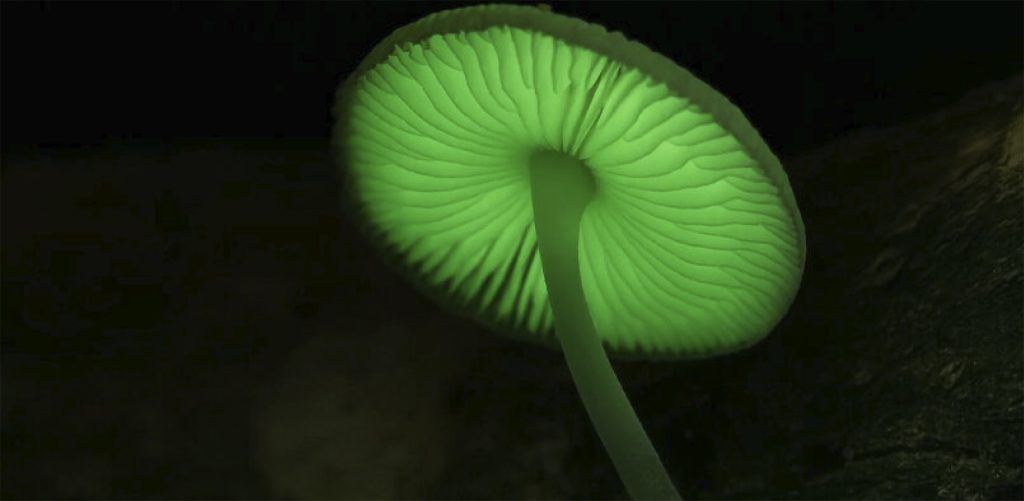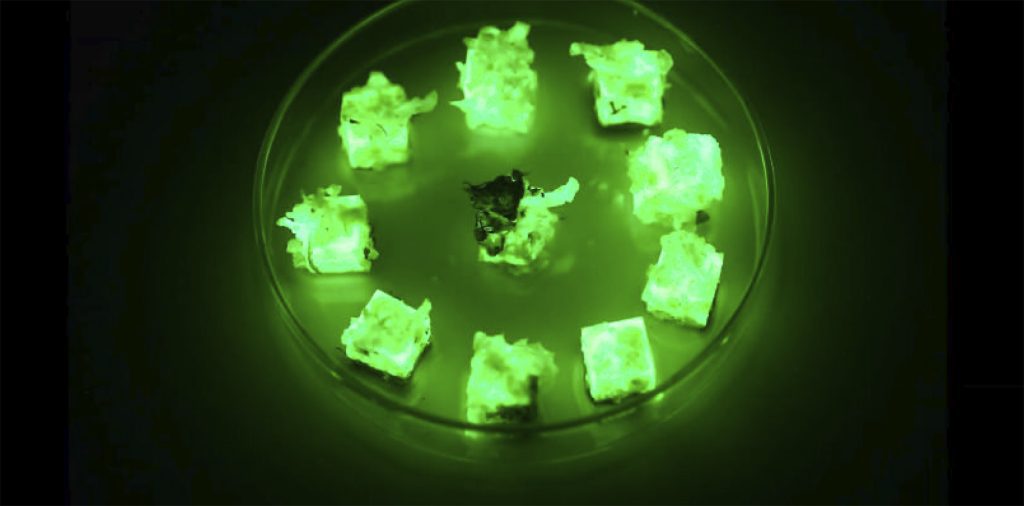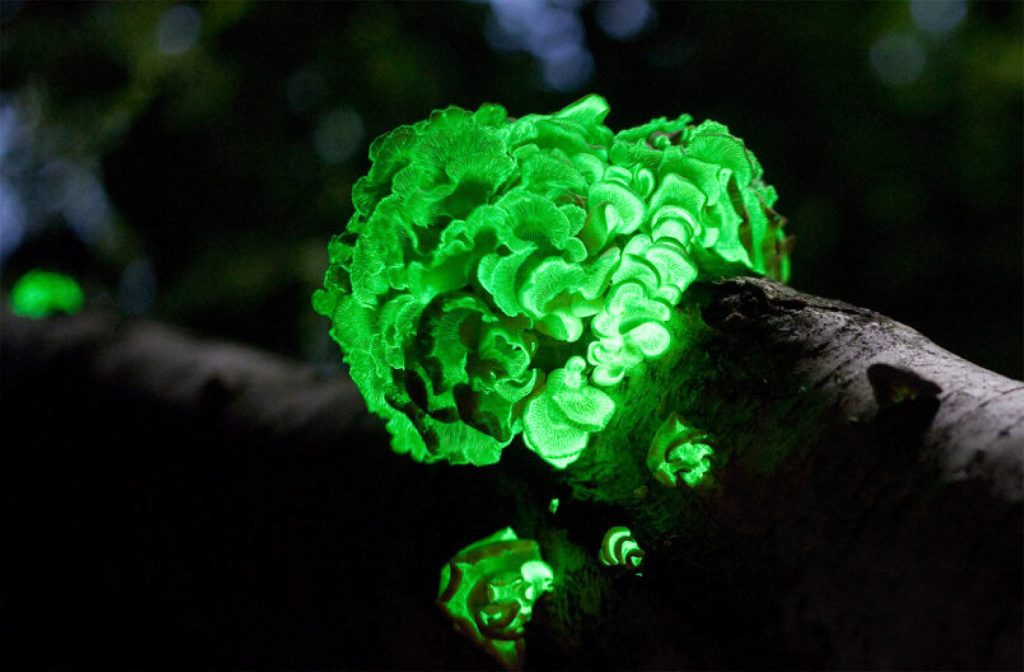Scientists at the Swiss Federal Laboratories for Materials Science and Technology (Empa) have developed wood that glows in the dark, using a bioluminescent fungus. This innovative material, created by incubating balsa wood with a ringless honey fungus, emits a green glow when exposed to oxygen. The reaction is powered by the enzyme luciferase, which activates luciferin, the substance responsible for bioluminescence. Despite the fungal “infection,” the structural integrity of the wood remains intact, making it both luminous and durable.
Dubbed a biohybrid, the material combines living fungal threads with non-living wood, offering a sustainable alternative for applications such as portable lighting in dark or remote areas. The wood can glow for up to ten days, with researchers working to enhance its brightness and duration. By leveraging the fungus’s ability to break down lignin without damaging cellulose, the team has ensured the material retains its strength. This breakthrough highlights the potential for creating eco-friendly, bioluminescent materials for practical use.



All images courtesy of the researchers and EMPA

